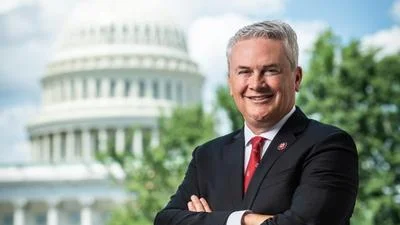Energy and Commerce Chairman Frank Pallone, Jr. (D-NJ) delivered the following opening remarks today at a Communications and Technology Subcommittee hearing titled, “5G and Beyond: Exploring the Next Wireless Frontier:”
This Committee has a long tradition of working together in a bipartisan fashion to lay the groundwork for technological innovation in this country, and this hearing is no exception. Today, we begin exploring the next frontier of wireless technology. I believe it is more important than ever that we lay the foundation for our nation to continue to lead the world in critical technological advancements.
There is no question that our nation’s airwaves are the engine that has powered so much technological growth. Without them, we would not have wireless emergency alerts, the app economy, smartphones, messaging services, the internet of things, or drones. Just imagine that for a moment – so much of the technology we rely on every day simply would not exist. These are remarkable achievements, but our past success does not always dictate the present or the future. Our nation’s global leadership in providing consumers with access to 4G wireless technology and Wi-Fi does not guarantee we will see the same result in 5G or next-generation wireless technology, such as 6G and Wi-Fi 7.
The stakes could not be higher. Failure to replenish the commercial spectrum pipeline risks the United States falling behind our counterparts across the globe, including China, in producing cutting-edge consumer innovations and enhancing our national security capabilities. And since transitioning our airwaves to allow for new uses takes time, we must start to put the necessary pieces together now so that the United States can be ready for the wireless technologies of tomorrow.
This is especially important because China has already reportedly made three times as much mid-band spectrum available for 5G compared to the United States. Mid-band spectrum delivers the best of both worlds when it comes to wireless broadband – faster speeds, less buffering, and access to a signal indoors. These are the airwaves that will fuel advancements in telehealth services, public safety, manufacturing, and supply chain management.
But it is not enough to simply make our airwaves available for commercial use. We must have the ability to place these radio waves in the hands of innovators who can put them to good use for the public's benefit. Since 1994, the Federal Communications Commission (FCC) has accomplished this feat through its spectrum auction program and through truly remarkable and innovative unlicensed spectrum policies. The FCC’s auction program has been a resounding success, raising $200 billion in federal revenue since its inception.
And now the FCC’s spectrum auction authority must be extended, or it will expire in about six months. Without an extension, the FCC may not be able to complete at least one mid-band spectrum auction, and auctions that have already occurred may not be able to properly close.
For these reasons, I urge my colleagues to work in a bipartisan way to extend this authority once again. We must do this well before the FCC begins its planned auction of the 2.5 Gigahertz (GHz) Band in July, otherwise the auction will be disrupted. Congress would also be able to put auction proceeds to good use by funding priorities like promoting digital equity, next generation 9-1-1, or the replacement of suspect communications equipment.
We must also ensure that the federal government speaks with one voice when it comes to our airwaves, and that’s why Chairman Doyle's Spectrum Innovation Act is so key. It will help clarify how important spectrum auctions on the horizon should operate to keep our processes streamlined.
I am also pleased to see that the new leaders at the National Telecommunications and Information Administration (NTIA) and the FCC have already started making some headway toward ensuring the two agencies speak with one voice. Both agencies recently announced a new spectrum coordination initiative that aligns with legislation this Committee unanimously reported to the House back in November.
This initiative will also produce a national spectrum strategy, which I strongly support. Creating this important guidepost will better position NTIA and the FCC to meet the current and future spectrum demands of consumers, commercial carriers, and federal agencies alike.
We have a lot to discuss today as we explore the next wireless frontier. I welcome our panelists to the Committee and look forward to hearing from them. And I yield back the balance of my time.
Original source can be found here.









